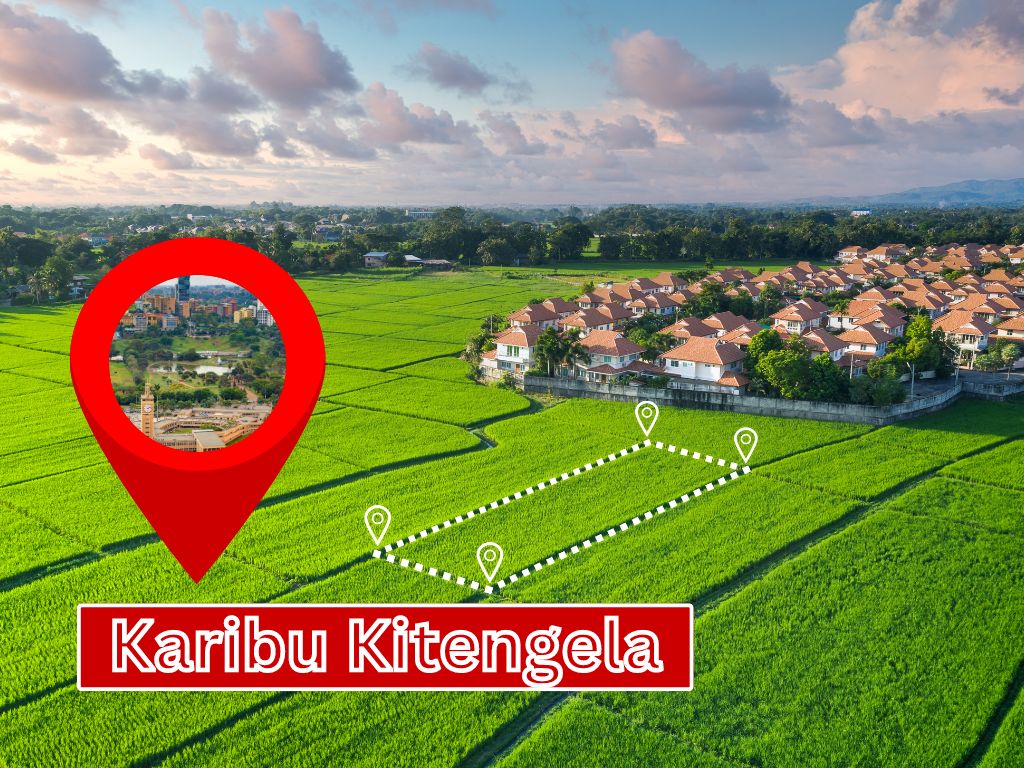
Everything you need to know when buying land in Kenya
Posted On: 23 Mar, 2024
Are you considering investing in land in Kenya?
Whether you're a first-time buyer or an experienced investor, it's important to have a comprehensive understanding of the land-buying process in Kenya. In this ultimate guide, we'll cover everything you need to know to make an informed decision. From understanding land ownership laws and regulations to conducting thorough due diligence, we'll provide you with valuable insights to guide you through every step of the process.
At Musti Investment Limited, we believe in empowering our clients with the knowledge and resources they need to make confident investment decisions. Our team of experts has carefully curated this guide to help you navigate the complexities of buying land in Kenya. Discover the key factors to consider when choosing a location, learn about the different types of land titles, and gain insights into the risks and benefits of conducting due diligence in your purchase process. By the end of this guide, you'll be equipped with the knowledge to make a well-informed decision and ensure a successful investment in Kenyan land.
Understanding the Legal Framework for Land Ownership in Kenya
Kenya has a unique legal framework for land ownership. The Constitution of Kenya recognizes three main types of land: public, community, and private land. Public land is owned by the government, while community land is held by specific communities or groups. Private land, on the other hand, can be owned by individuals, corporations, or organizations.
To ensure a smooth land buying process, it's crucial to understand the legal requirements and regulations surrounding land ownership in Kenya. One of the key legislations to be aware of is the Land Registration Act, which governs the registration of land in Kenya and the issuance of land titles. It is important to engage the services of a competent lawyer or land expert to guide you through the legal aspects of land ownership in Kenya.
Additionally, it's important to be aware of any existing land disputes or claims on the land you are interested in purchasing. This can be done by conducting a thorough title search and land survey. Understanding the legal framework and conducting proper due diligence will help you avoid potential legal issues and ensure a secure land ownership in Kenya.
Factors to Consider When Buying Land in Kenya
Purchasing land in Kenya needs you to understand several factors before you consider to make an informed decision. Let's break this down:
- Location of the land: The location plays a crucial role in determining the value and potential of the land. Consider factors such as proximity to infrastructure, amenities, and access to transportation.
- Potential for Future Development: Research the potential for future development in the area, as this can greatly impact the value of your investment.
- Purpose of the land: Clearly understand your intended purpose for the land you out to purchase. Are you buying it for residential, commercial, or agricultural purposes? Different types of land are suitable for different purposes, and it's important to choose land that aligns with your investment goals.
- Security of the area: Safety is a top priority for any investment, and it's important to choose a location with a low crime rate and a stable political environment.
- Availability and Access to Social Amenities: Research the availability of basic services such as electricity, water, and healthcare facilities in the area.
These factors will not only impact your quality of life but also the value and potential of your investment.
Researching and Identifying Potential Land Options
Once you have determined the key factors to consider when buying land in Kenya, it's time to start researching and identifying potential land options. Consider the following ways to go about on this process.
- Engage the services of a reputable real estate agent or land expert: These professionals have extensive knowledge of the market and can help you identify suitable land options based on your requirements. They can also provide valuable insights into the current market trends and help you negotiate the best deal.
- Utilize online platforms and websites that list land for sale in Kenya: These platforms allow you to search for land based on location, size, and price range. They often provide detailed information about each listing, including photos, maps, and contact details of the sellers. This allows you to compare different options and make an informed decision.
- Networking with local communities, developers, and other investors who have experience in the Kenyan land market. They can provide valuable recommendations and insights into potential land options that may not be listed publicly.
Conducting Due Diligence Before Making a Purchase
Conducting due diligence before finalizing a land purchase in Kenya is crucial to ensure that the land is free from any legal issues or disputes. This involves several steps.
These steps include:
- Conducting a title search: This is the first official process which can be done at the Ministry of Lands or through a reputable lawyer. A title search will reveal any existing encumbrances, caveats, or claims on the land. It will also confirm the ownership of the land and the validity of the title deed.
- Verifying Registry of Persons and Property Background: With frequent land frauds, it is crucial to verify authenticity of seller's identity details and the land history. Visit the County Land Registry offices if the land is located within a Municipality to enquire about any land rates and check on the sellers background information.
- Conducting a physical site visit: This allows you to inspect the land firsthand and verify its suitability for your intended purpose. During the site visit, pay attention to factors such as the topography, access to roads, availability of utilities, and any potential environmental issues.
- Engaging a land surveyor to conduct a survey of the land: This will provide accurate measurements and boundaries of the land, ensuring that you are purchasing the exact area stated in the title deed.
The Process of Transferring Land Ownership in Kenya
Once you have completed the due diligence process and are satisfied with the land, the next step is to initiate the process of transferring land ownership in Kenya. This involves several steps and can be a complex process, let's break them down:
- Prepare the necessary legal documents: This includes the Sale Agreement and the Transfer of Ownership documents. These documents outline the terms and conditions of the sale and transfer of land ownership. It's important to engage the services of a competent lawyer to prepare and review these documents to ensure their accuracy and legality as outlined by the seller.
- Payment of Stamp duty and registration fees: This is done once the legal documents are prepared. These fees are determined based on the value of the land and are payable to the Kenya Revenue Authority.
- Verification and Registration at Ministry of Lands: After paying the fees, the documents are submitted to the Ministry of Lands for registration. The registration process involves verifying the documents, conducting a final search, and updating the land records.
- Issuance of Title Deed: This is done once the registration is complete, with the new title deed issued in the buyer's name, completing the transfer of land ownership.
Dealing with Land Brokers and Avoiding Scams
When buying land in Kenya, it's crucial to be aware of the risks associated with dealing with land brokers and potential scams. While there are many reputable brokers in the industry, there are also those who may try to take advantage of unsuspecting buyers. Here are some tips to help you navigate this aspect of the land buying process:
- Research and verify the credibility of the land broker: Before engaging with a land broker, conduct thorough research to determine their reputation and credibility. Look for reviews and testimonials from previous clients, and consider reaching out to them directly to get their firsthand experience. Additionally, check if the broker is registered with relevant industry associations or regulatory bodies.
- Ask for documentation: Request the necessary documentation from the land broker to verify the legitimacy of the land being sold. This includes the title deed, survey plans, and any other supporting documents. It's important to review these documents carefully and ensure they are authentic and up-to-date.
- Visit the site in person: Whenever possible, make a physical visit to the land you intend to purchase. This will allow you to assess the location, topography, and surrounding infrastructure. It also provides an opportunity to interact with the local community and get a sense of the neighborhood.
By following these precautions, you can minimize the risk of falling victim to scams and ensure a smooth land-buying experience.
Contact Musti Investment Limited for all your land purchases and inquiries.







Comments (0)
Post Your Comment